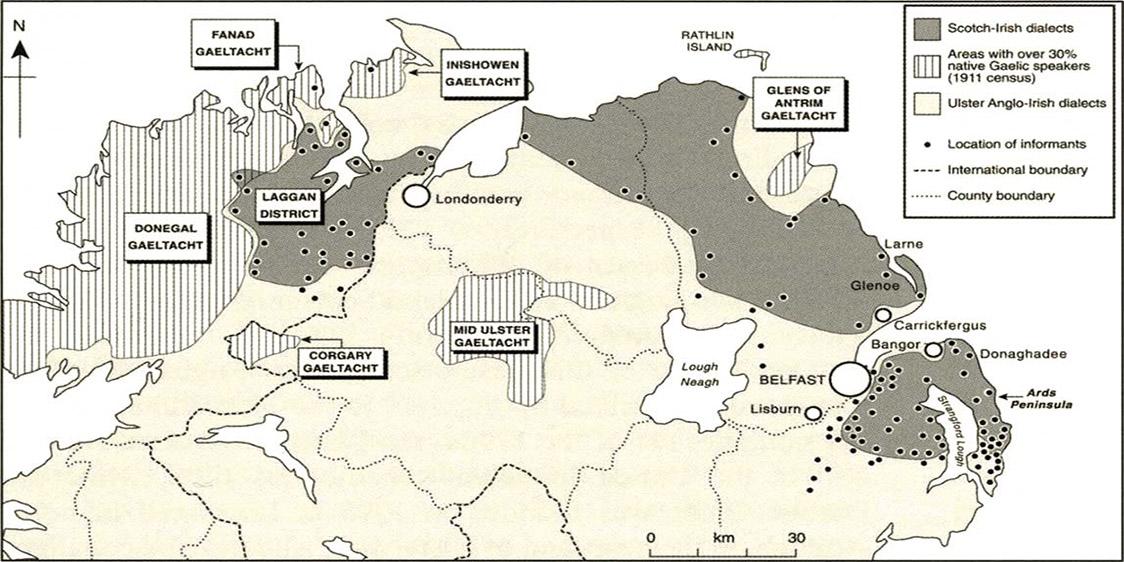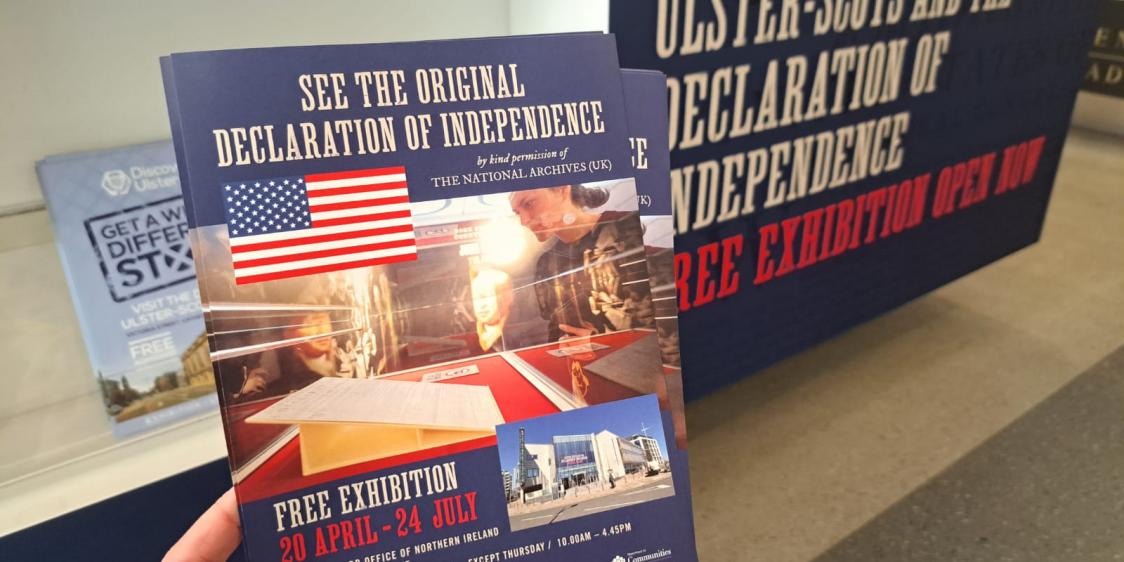The Ulster-Scots influence in Northern Ireland and beyond
Ulster-Scots history and culture are of central importance to many people in Northern Ireland. Entwined with Irish-Gaelic culture over hundreds of years, Ulster-Scots culture has given Northern Ireland a unique character, a unique vocabulary and a unique outlook on life. At the closest point there are only 12 miles between Ulster and Scotland across the Irish Sea, so for centuries there has been a flow of people both ways to trade and settle.
However, the main influx of Scottish people to Ulster dates to the early seventeenth century, when thousands of settlers arrived from the lowlands of Scotland and northern England. The arrival of so many Scots significantly changed the character of parts of Ulster and their influence was felt across many areas of life including education and language.
Indeed, by the nineteenth century, Scots visitors to Ulster were remarking on how different the region felt to the rest of Ireland, how it felt “the likeness to home” and reminded them of their “ain countrie”[1]. One writer remarked that “the general aspect of the country is nearly the same with that of Scotland. Oatmeal much used in the food of the people…”.[2]
The Scottish settlers spoke Scots, which was and is a language in its own right and which has left its mark clearly on the way the people of Northern Ireland talk to this day. Words such as ‘cowp’ (overturn / tip over) and ‘Oxte’r (armpit) are among many Ulster Scots words that can be heard daily across the region!
1 https://www.makingnorthernireland.co.uk/why-did-ulster-feel-so-scotch/john-harrison#topofpage
2 https://www.makingnorthernireland.co.uk/why-did-ulster-feel-so-scotch/james-glassford#topofpage

Celebrating Ulster-Scots heritage
Northern Ireland Screen’s Ulster-Scots Broadcast Fund was set up in 2011 to celebrate Ulster-Scots heritage, culture and language by providing production and development funding for broadcast projects. As of 31 March 2023, the fund has supported 262 hours of television, radio and digital content that is helping to ensure that the heritage, culture and language of Ulster-Scots is expressed through moving image and preserved for future generations.
Among the resources that have been produced with the fund’s support is the Making Northern Ireland website, which was written by Professor Wesley Hutchinson, an expert in Ulster-Scots history and culture.
Produced by the Nerve Centre, the website, which is targeted at schools, highlights how interest in Ulster-Scots history and culture formed an essential aspect of unionist political strategy in the years leading up to the foundation of Northern Ireland in 1921.
“It was at this period that the “Ulster Scot” emerged clearly in the popular imagination,” says Professor Hutchinson.
“Making Northern Ireland is an important resource that is now available permanently to anyone who is interested in Ulster-Scots history and heritage.
It gives a fascinating insight into how the Scots left an indelible mark on Ulster. As one nineteenth-century writer put it, the Ulster-Scots were ‘distinguished by habits of thought, character, and utterance entirely unlike the people who fill the rest of the island[1]’.
“I’m delighted that Making Northern Ireland has become available as part of the educational curriculum and that it has captured the interest of young people.”
Ulster-Scots around the world
The influence of the Ulster-Scots community goes far beyond Northern Ireland. In the eighteenth century over 200,000 people emigrated from Ulster to the American colonies, and their influence is felt to this day.
More than a third of US presidents can trace their ancestry to Ulster with many coming from the Ulster-Scots community. Among them are Andrew Jackson (1829–1837), Ulysses S Grant (1869–1877) and more recently Bill Clinton (1993–2001) and George W Bush (2001–2009).
Across language, music and values, especially in the religious and educational arenas, the influence of the Ulster-Scots people in America was profound. They were lauded for their grit, determination and pioneering spirit.
In Australia, Canada and New Zealand too, thousands of people are descended from Ulster stock and many have made their mark as successful businessmen, academics, politicians and sports people.
The Ulster-Scots influence has even gone beyond Earth – with Ulster-Scots descendants Neil Armstrong and James Benson Irwin both among the very few people who have walked on the moon!

Ulster-Scots ongoing influence
Ulster-Scots culture is firmly embedded in Northern Ireland’s character and is manifested in daily life in Ulster-Scots areas, particularly in Counties Antrim and Down.
In how they speak, what they read, how they dance and so on, Ulster-Scots culture is simply part of the world that many people live in. And in a world that is increasingly being determined by international social media, having something real, something local, something that links to our past is important.
“Ulster-Scots is part of a patchwork of culture in Northern Ireland, one of the strands that go to make Ulster the unique place that it is,” says Professor Hutchinson.
Words you might not know are Ulster-Scots!
Cod - joke or joker
Footer – clumsy person
Cowp – overturn / tip over
Blether - talk nonsense
Brave - quite good
Brung - brought
Clod - throw
Hoke - to burrow or makes holes
Thon - that
Oxter - armpit
Sleekit - devious, cunning





